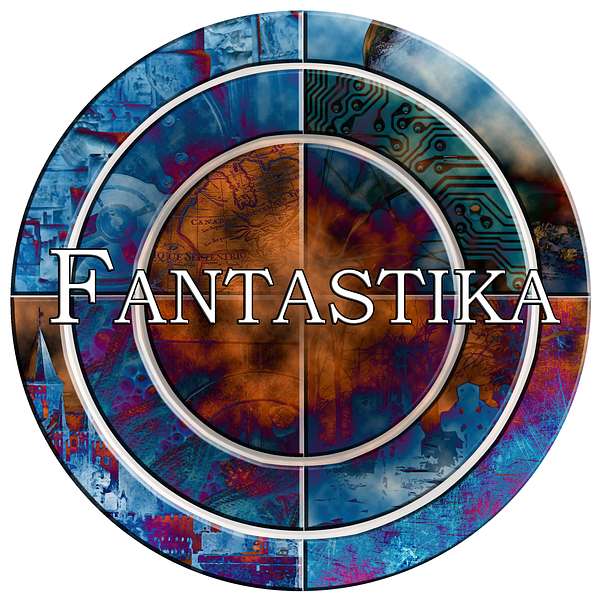
Fantastika Journal
Fantastika Journal
“Sweet tits of Billy!”
This podcast is part of the LGBTQIA+ Fantastika Graphics Symposium.
Join the discussion on discord (https://discord.gg/gtT4GTJgD2) or on our zoom webinar on 20 Nov 2021. See fantastikajournal.com for details.
Background music by scottholmesmusic.com
Podcast by: Mihaela Precup & Dragoş Manea
“Sweet tits of Billy!”:
Reclaiming Queer History in Exit Stage Left: The Snagglepuss Chronicles
This podcast examines DC’s adaptation of Snagglepuss, a character that made his debut in 1959 and eventually became part of Hanna-Barbera’s Yogi Bear Show. Mark Russell and Mike Feehan’s 6-issue series (2017-2018) builds an origin story for the eponymous animated character by emphasizing his initially coded queerness and transforming him into a famous gay playwright who is blacklisted during the McCarthy era.
The Snagglepuss Chronicles builds a storyworld that borrows characters both from contemporary literary, popular, and political culture (from Dorothy Parker to Marilyn Monroe and Nikita Khrushchev), as well as from The Yogi Bear Show and related animated series, such as The Huckleberry Hound Show. In Russell and Feehan’s adaptation, whose storyline develops between 1953 and 1959, humans and anthropomorphic animals live side by side during a dark time in American history, when alliances are fragile, conformity is brutally preserved, and difference is swiftly punished.
In this context, Snagglepuss is not so much queered as recovered as a canonical queer character with added flamboyance, swagger, and a penchant for spending time at The Stonewall Inn. In a chilling atmosphere where self-preservation tests human/animal connection, salvation is finally to be found outside of the world of high art and in the “low” medium of animation, where the slightly elitist blacklisted Snagglepuss finds a home as a cartoon character.
In conversation with scholars such as Henry Jenkins, Pamela Demory, and Ramzi Fawaz, we are interested in answering questions such as: how does the recuperation of the original quirky and swishy Snagglepuss as a “sexy gay daddy” (as The Advocate described him) contribute to our understanding of McCarthyism, the Stonewall Riots, and present-day events from American history? Also, by suggesting that “low culture” forms like animation were able to provide valuable protection for “subversives,” how does the comic contribute to current debates about the status of comics in the cultural hierarchy? Finally, what does the mixture of human and animal characters bring to the storyworld of Snagglepuss?
About the Speakers: Mihaela Precup (she/her) is Associate Professor in the American Studies Program at the University of Bucharest, where she teaches American visual and popular culture, contemporary American literature, and comics studies. She has co-edited (with Rebecca Scherr) three special issues of the Journal of Graphic Novels and Comics (on War and Conflict and Sexual Violence).
Dragoş Manea (he/his) is a lecturer at the University of Bucharest, where he teaches courses in American literature, cultural memory studies, and film studies. He is a recipient of the Sabin Award for Comics Scholarship (2017).
Disclaimer: The information and ideas in these podcasts are the property of the speakers. Fantastika Journal operates under the Creative Commons Licence CCBY-NC. This allows for the reproduction or transcription of podcasts for non-commercial uses, only with the appropriate citation information. All rights belong to the author.
The views expressed in these podcasts do not necessarily reflect the opinions of Fantastika Journal and its editorial board.
This podcast edited by Kerry Dodd